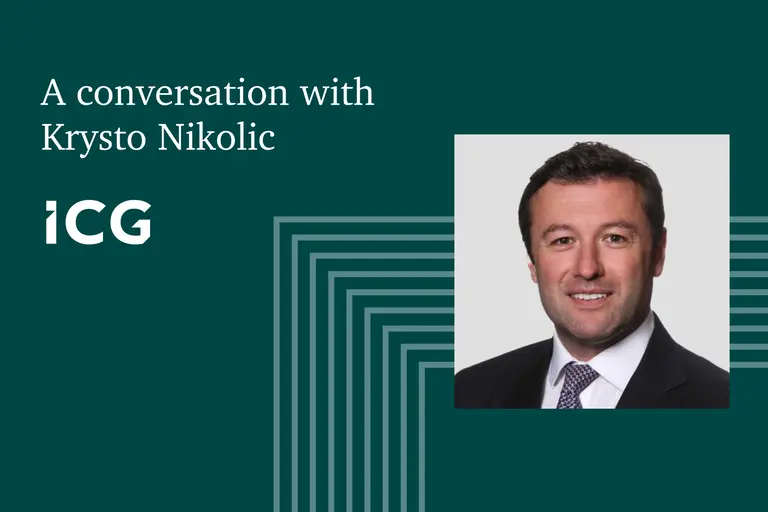
Krysto Nikolic, Global Head and CIO of Real Estate at ICG, has led over $14 billion of acquisitions in his 20 years in the European real estate market. Nikolic opted to join the ICG team in 2022 for a simple reason: "I wanted to work for a European shop. The infrastructure and market connectivity at ICG in the European marketplaces are second to none."
The firm's purposeful development of a competitive and structural advantage through sale-leaseback and triple-net leases has paid off. Today, ICG manages around $100 billion of capital for ~650 LPs globally. Though ICG and Nikolic's foundations were built on a deep understanding of Europe's unique real estate market, the firm's success has led to global growth. "We now have teams in Singapore and Sydney, and we've made investments across Japan, Korea, and Australia. That international growth is quickly becoming a big focus for us."
ICG's unique approach
As one of the longest-standing non-bank lenders in European real estate, ICG took an active interest in real estate credit after the GFC, becoming a pioneer in providing high-return alternative credit to the European real estate marketplace. Wanting to find its own niche in the space, ICG developed a specialization in sale-leaseback and triple net lease arrangements.
Nikolic noted that European companies tend to hold more real estate on their balance sheets than those in the U.S. This is due to several factors, including differences in accounting standards and practices—U.S. accounting principals incentivize companies to keep real estate off their balance sheets, as they depreciate over time. In contrast, European standards allow real estate assets to be re-evaluated to their fair market value. However, in the wake of the GFC, many owner-occupiers in Europe sought to optimize their balance sheets by selling their properties and entering sale-leaseback or triple net lease agreements. ICG tapped into this unique opportunity, establishing itself as Europe's go-to firm for corporates seeking to monetize assets amidst financial pressures.
Today, Germany is another major economy with challenges—a 40% increase in energy prices, rising inflation, and export declines. "Germany was the darling of global real estate markets," Nikolic noted. "That largely has all gone away in the space of 24 months. And that is a tough reckoning for those that owned assets prior to the downturn."
For ICG, however, it has presented opportunities in the same vein as their post-GFC strategy. Corporations' increased demand for liquidity has allowed Nikolic to lean into German sale-leaseback deals. "As German corporates face financial challenges, one of the things they're realizing is the real estate on their balance sheet," Nikolic said. "We've been a big provider of that capital."
ICG's established credit expertise allows the firm to thoroughly assess each corporate partner's financial health, competitive position, and sector outlook. This approach has yielded results: "They just don't want to own their real estate anymore," Nikolic said. "And we are the first point of call for when they're looking to trade on some of that asset base…We are the largest private fund investor in sale-and-leaseback and triple net leases in Europe.”
Finding value in undersupplied markets
Decades of identifying investment opportunities within different European countries, each with a distinct economy and idiosyncrasies, has taught Nikolic to refrain from painting the European real estate environment with too broad a brush. However, he can point to one throughline across the market that drives ICG's strategic focus: chronic undersupply in the logistics, industrial, and residential sectors.
The GFC exacerbated that undersupply and Nikolic anticipates developers will remain reluctant to add more exposure to their books for another four or five years. "There will be structural undersupply in the European markets for close to two decades," he predicted.
Similarly, major European cities are facing a homebuilding crisis. France, Germany, and the U.K. are forecasted to accumulate housing target shortfalls in 2024 of 200,000, 210,000, and 150,000 units, respectively.
To ICG, this means residential financing opportunities. Nikolic said that being a large-scale financier of residential construction "has been a really nice place for us to invest. Banks are more shy than they used to be on construction financing. And so we're able to eke out interesting risk-return in the residential finance space."
Want the full conversation with Krysto Nikolic? Watch it on-demand now.